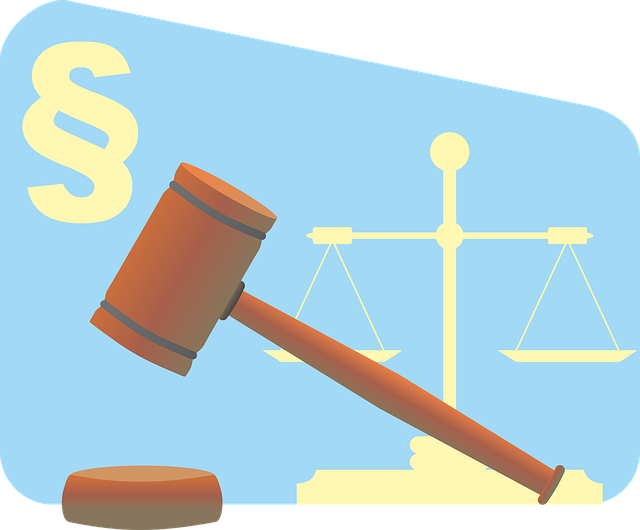Consumer Fraud Class Action Lawsuits pose significant risks to businesses with potential financial penalties and reputational harm from alleged consumer protection violations. Navigating federal and state regulations, especially in a decentralized legal system, is vital. Proactive measures like transparency and accurate disclosure prevent lawsuits, while robust defense strategies are crucial for winning verdicts. Staying ahead of regulatory changes through regular policy reviews, employee training, and communication with government bodies mitigates risks and fosters compliance, enhancing organizational reputation.
Navigating regulatory compliance issues is crucial for businesses aiming to avoid costly lawsuits and maintain a positive reputation. This article delves into the intricate world of consumer protection, focusing on the growing threat of Consumer Fraud Class Action Lawsuits. We explore the legal framework encompassing federal and state regulations, providing insights into identifying violations in marketing practices. Understanding the impact on businesses—from hefty fines to reputational damage—is essential. Learn effective strategies for regulatory compliance, empowering your organization to stay ahead of the curve and mitigate risks associated with these lawsuits.
- Understanding Consumer Fraud Class Action Lawsuits
- Legal Framework: Federal and State Regulations
- Identifying Violations in Marketing Practices
- Impact on Businesses: Fines and Reputational Damage
- Strategies for Effective Regulatory Compliance
Understanding Consumer Fraud Class Action Lawsuits

Consumer Fraud Class Action Lawsuits are a significant concern for businesses, as they can result in substantial financial penalties and reputational damage. These lawsuits stem from alleged violations of consumer protection laws, where individuals join together to sue companies over deceptive or fraudulent practices. The process involves a thorough investigation into the company’s activities, examining marketing strategies, sales tactics, and product representations. If found guilty, businesses may face large-scale settlements, fines, and other legal consequences.
Understanding this potential threat is crucial for companies to implement robust internal controls and compliance measures. A proactive approach can help prevent such lawsuits by ensuring transparency, accurate disclosure, and fair treatment of consumers. Moreover, having a strong defense strategy in place, especially when dealing with white-collar and economic crimes, can be instrumental in winning challenging defense verdicts for his clients.
Legal Framework: Federal and State Regulations

In the realm of business operations, navigating the intricate web of federal and state regulations is paramount to avoid legal pitfalls, particularly in high-stakes cases such as Consumer Fraud Class Action Lawsuits. The United States, with its decentralized legal system, relies on both federal and state laws to protect consumers from deceptive practices, making it crucial for businesses to understand this dual regulatory framework. Federal laws, enforced by agencies like the Federal Trade Commission (FTC), set broad guidelines for consumer protection, while state regulations fill in specific gaps, ensuring a comprehensive approach to deterring and penalizing fraudulent activities.
Understanding these legal nuances is essential when dealing with potential Consumer Fraud Class Action Lawsuits. A robust general criminal defense strategy should account for both levels of regulation. By adhering to this framework, businesses can achieve extraordinary results—not only in avoiding legal repercussions but also in fostering trust among their consumer base. This proactive approach not only mitigates risks but also positions companies as responsible stakeholders in the dynamic landscape of consumer protection.
Identifying Violations in Marketing Practices

Identifying violations in marketing practices is a critical step to ensure regulatory compliance and avoid potential pitfalls like a Consumer Fraud Class Action Lawsuit Process. Businesses must remain vigilant and proactive, as misleading or deceptive advertising can have severe repercussions. By implementing robust monitoring systems and staying informed about evolving regulations, companies can identify discrepancies early on. Regular audits of marketing materials, campaigns, and customer feedback are essential tools in this process.
Moreover, achieving extraordinary results through ethical marketing requires a comprehensive understanding of the legal landscape. Staying ahead of regulatory changes across the country is key to avoiding indictment and protecting both consumers and the brand’s reputation. Effective strategies include seeking professional guidance, training employees on compliance best practices, and fostering a culture that prioritizes transparency and accuracy in all marketing communications.
Impact on Businesses: Fines and Reputational Damage

Non-compliance with regulations can have severe consequences for businesses, often resulting in substantial fines and significant reputational damage. These penalties are designed to deter companies from engaging in unethical practices and protect consumers from potential harm. When a business violates laws related to consumer protection, data privacy, or environmental standards, it not only faces legal repercussions but also erodes customer trust. Consumer Fraud Class Action Lawsuits are a common outcome, where groups of affected individuals band together to hold transgressors accountable, which can lead to substantial financial settlements.
The impact extends beyond the legal realm; it affects a respective business’s market standing and long-term success. Reputational damage can be hard to recover from, as it influences customer loyalty and the ability to attract new corporate and individual clients seeking trustworthy partners. Achieving extraordinary results in regulatory compliance is crucial for maintaining a sustainable and ethical business model, ensuring the survival and growth of the respective company in an increasingly vigilant market.
Strategies for Effective Regulatory Compliance

Staying ahead of regulatory changes is a cornerstone of effective compliance. Companies should implement proactive strategies to ensure they remain in line with evolving laws and standards. Regularly reviewing and updating internal policies, training employees on new regulations, and establishing clear communication channels with relevant government bodies can help mitigate risks. An agile approach, where businesses adapt quickly to changing environments, fosters a culture of compliance that benefits both the company and its customers.
Another key strategy is to foster strong relationships within the philanthropic and political communities. By engaging with these sectors, companies can gain valuable insights into potential regulatory shifts and their implications. This proactive stance not only helps in avoiding Consumer Fraud Class Action Lawsuits but also strengthens an organization’s reputation. Moreover, having a history of winning challenging defense verdicts for his clients can demonstrate a firm’s expertise in navigating complex legal and regulatory landscapes, thereby enhancing its credibility and trustworthiness.
In navigating the complex landscape of regulatory compliance, businesses must be vigilant in understanding consumer fraud class action lawsuits and the legal frameworks that govern them. By identifying violations in marketing practices early on, companies can mitigate the significant fines and reputational damage often associated with non-compliance. Adopting robust strategies to ensure adherence to federal and state regulations is not just a legal necessity but also a key factor in fostering public trust and maintaining a competitive edge in today’s digital era. Effective compliance measures act as a game changer, protecting businesses from the far-reaching impacts of consumer fraud while ensuring a harmonious relationship with regulatory bodies.






